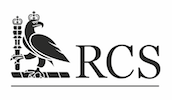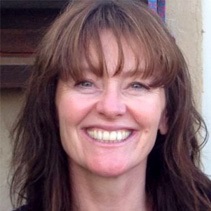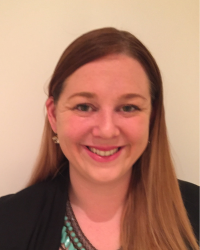Study options
- Starting in
- September 2025
- Location
- Distance Learning
- Fees
- Home: £7,800
Overseas: £14,250
EU/EEA/Swiss students
The course fee is charged per annum for 2 years. Note that fees may be subject to an increase on an annual basis - see details on our tuition fees page.
What you'll study
Opportunities for the training of military trauma care specialists are extremely limited, and many defence agencies rely on the deployment situation as the primary training for their personnel. This programme will help you to develop the skills needed in situations of dire emergency and global disaster.
You can access the programme wherever you are, and you will have the option of a two-week residential summer school in London. The MSc is a collaboration between the Barts Centre for Trauma Sciences (C4TS) and Queen Mary University of London's Faculty of Medicine and Dentistry.
You will have access to an international, expert faculty and innovative, technology-enhanced learning. You will take part in interactive discussion forums and one-to-one tutor sessions.
You will also be offered an optional two-week residential summer school at the end of the first year in London. The summer school will give you simulated scenario training to complement your learning. You will gain practical knowledge and experience of decision-making so you can deliver safe, professional core clinical functions in the management of seriously injured patients. In your second year of study, you will write a dissertation on a specific area of knowledge, or you may undertake original research.
Students* gave this programme a score of 94% for aspects of teaching and learning, and 100% for dissertation support and feedback. Students* gave this course a 100% overall satisfaction rating.
*Students who completed the Postgraduate Taught Experience Survey (PTES) 2024
Additional costs
You will be responsible for your travel, accommodation and subsistence costs for the summer school.
Structure
- Eight core modules
- Optional two-week summer school
- 3,500-word dissertation
Compulsory/Core modules
This module will focus on the mechanism and pathophysiology of torso injuries. It will provide you with a more critical knowledge of common patterns for torso injuries, as well as the tools to recognise and initiate treatments for the most common and life threatening injuries.
This module will cover the pathophysiology of Brain and Spinal Cord injury, teaching you to critically evaluate the principles of diagnosis and treatment for patients with traumatic brain and spinal cord injuries. This will include description of specific type of injuries. You will discuss cases involving different clinical scenarios. Once completed you will be able to describe the mechanisms and dysfunction inherent to traumatic brain injury and to outline the key elements of their management. Particular reference is given to the recent scientific literature.
This module will introduce you to basic principles of research design and strategy, ranging from the formulation of research problems to the critical assessment of alternative approaches to research. You will gain a thorough grounding of most common research methods in medical science. You will also develop an appreciation for research ethics specific to the discipline of medical science.
This unassessed, non-compulsory module will take place over a two-week period in London. It is the only time during the MSc course that students and faculty are able to meet personally. You will take part in a number of interactive courses and simulations, designed to tie together various aspects of the taught modules.
This module will allow you to undertake a dissertation project on a topic within the science and practice of trauma care. You will be able to choose a pertinent topic within your specialism and career aspirations, and will be supervised and receive guidance. You will discuss the most relevant aspects of your chosen topic and demonstrate your ability to select the most appropriate research methodology to conduct your chosen research. During this module, you (in coordination with a supervisor) will select a topic for advanced study; collect and analyse data to adequately address the chosen topic; and write a 3,500-word dissertation. Through the dissertation, you will synthesise various aspects of the knowledge you will have obtained through the degree and demonstrate your ability to conduct and present high quality original research.
This module will provide a comprehensive overview of the diagnosis and management of musculoskeletal and extremities vascular trauma. You will be encouraged to use a critical and scientifically robust approach to plan patient care and to develop problem solving skills in the context of orthopaedic trauma. You will take an in depth look into cases of blunt and penetrating injuries to the extremities and the resultant vascular abnormalities.
This module will provide you with a background into both military and civilian austere events. The module will cover triage, pre-hospital care, mass casualty management and surge capacity, ballistics, chemical and biological trauma. The latest techniques learnt by the military will be proposed and critically evaluated.
This module will provide students with a solid background in the rapidly evolving area of critical care in adult and paediatric trauma. In this module the students will develop an evaluative approach to critical care. Special attention will be given to "hot topics" such as shock therapy, ventilator management, paediatric resuscitation and critical care and surgery. The module will provide students with the latest evidence based in trauma care and the ability to analyse it.
The aim of the module is to provide the knowledge to consider and manage trauma as a disease entity. The module starts with an historical overview of trauma and trauma systems and then proceeds to analyze the different aspects on how to deliver a specialist trauma care, from pre hospital care through the entire patient's care pathway.
This module will provide students with the tools to evaluate different clinical situations and broaden the knowledge on diagnosis and management of shock syndrome. Particular attention will be on the deranged physiology underlying the onset of acute traumatic coagulopathy.
Assessment
The form of assessments reflect the nature of material you study, but will normally include:
- critique of research literature
- written evaluative assignments
- online multiple choice quizzes (MCQs).
You will also complete a compulsory 3,500-word dissertation.
—As an emergency medicine trainee, the Trauma Sciences MSc has enabled me to develop my understanding of the evidence base behind how we manage trauma, the future of trauma research and how it benefits patients. I have thoroughly enjoyed learning from lecturers at the top of their field and connecting with other students from around the world. The supportive course faculty has guided me through from being a complete novice in trauma research to my first publication in a peer-reviewed journal and set me up for a future career working as a Trauma Team Leader.
Dr Tom Burt, Emergency Medicine ST4
Teaching
The programme will be entirely delivered online through the Queen Mary Virtual Learning Environment (QMplus). This will incorporate lectures, seminars, clinical case discussions and online discussion groups. Students will have access to printable material, video presentations, asynchronous case-based discussions and open-forum sessions.
There is also an optional two-week summer school. The summer session will concentrate on group projects, interactive workshops and training in subspecialty skills and simulation at the Royal College of Surgeons of England, the Barts Health Academy and The Royal London Hospital Major Trauma Centre.
Blizard Institute distance learning (online) students* gave their experience a score of 99% for overall satisfaction.
*Students who completed the Postgraduate Taught Experience Survey (PTES) 2024
Where you'll learn
Facilities
- Access to Queen Mary’s dedicated online portal, QMplus
- Access to video and audio recordings of all lectures and other online resources (journals, books and databases)
- Video tutorials for lab-based work
- Access to our campus facilities if you decide to visit at any point during your programme
- Watch our video to discover online study at Queen Mary
About the Institute
Blizard Institute
The Blizard Institute is the largest institute of the Faculty of Medicine and Dentistry. Our research and education span broad areas of modern biomedicine, with particular expertise in cell biology, genomics, immunology, neuroscience, primary care, population health and trauma sciences.
Our research puts Queen Mary joint seventh in the UK (REF 2021). We work closely with linked NHS hospital trusts which means that the School’s research and teaching is informed by an exceptionally wide-ranging and stimulating clinical environment.
Barts Health NHS Trust is home to:
- One of the capital's leading trauma and emergency care centres in the UK (approaching 1,000 attendances daily)
- Europe’s largest Trauma Centre
- Europe’s busiest Heart Centre.
Queen Mary University is also part of the prestigious Russell Group - a body of leading UK universities dedicated to research and teaching excellence.
Career paths
The largest growth area for jobs in the medical field has been in trauma over recent years. This course is tailored to meet the needs of international graduates from all healthcare and health sciences backgrounds including surgeons, anaesthetists, nurses, operating department staff, allied health professionals and those with a specialist interest in trauma education and training.
It is intended to provide high-quality learning, no matter where you are in the world, in order to develop the future leaders in the science and practice of trauma sciences, including the field of Military and Humanitarian trauma.
- 96% of Blizard postgraduate-taught students are in employment or further study (2020/21)
- 98% of Blizard postgraduate-taught students are in highly skilled work or study (2020/21)
- £47k is the median UK salary of Blizard Institute postgraduate-taught graduates (2020/21). 87% earn above this.
—I really enjoyed how accessible the course was – all the material is online meaning I could revisit it when I had the time. It really suits everyone’s different learning styles. It helped me go from Matron in Major Trauma to Nurse Consultant. Because of the course, research is something I will look into in the future.
Joanne Lockwood-Smith, MSc Trauma Sciences
Fees and funding
Part-time study
September 2025 | 2 years
- Home: £7,800
- Overseas: £14,250
EU/EEA/Swiss students
Queen Mary alumni can get a £1000, 10% or 20% discount on their fees depending on the programme of study. Find out more about the Alumni Loyalty Award
Funding
There are a number of ways you can fund your postgraduate degree.
- Scholarships and bursaries
- Postgraduate loans (UK students)
- Country-specific scholarships for international students
Our Advice and Counselling service offers specialist support on financial issues, which you can access as soon as you apply for a place at Queen Mary. Before you apply, you can access our funding guides and advice on managing your money:
Entry requirements
UK
Degree requirements
A 2:2 or above at undergraduate level in Nursing, Paramedical Science or a Medical degree (non-UK medical degrees marked on a grading scale must be equivalent to a UK 2:2 degree).
Professional clinical experience in managing patients with traumatic injury is desirable.
Other routes
Applicants with Nursing, Paramedical Science, Medical degrees below this level and those working in a relevant medical field will be considered on an individual basis if there is strong evidence of suitable professional experience.
Find out more about how to apply for our postgraduate taught courses.
International
English language requirements
The English language requirements for our programmes are indicated by English bands, and therefore the specific test and score acceptable is based on the band assigned to the academic department within which your chosen course of study is administered. Note that for some academic departments there are programmes with non-standard English language requirements.
The English Language requirements for entry to postgraduate taught and research programmes in the Blizard Institute falls within the following English band:
Band 4: IELTS (Academic) minimum score 6.5 overall with 6.0 in each of Writing, Listening, Reading and Speaking
Please note, there are some postgraduate programmes with non-standard English language requirements in this Institute.
We accept a range of English tests and qualifications categorised in our English bands for you to demonstrate your level of English Language proficiency. See all accepted English tests that we deem equivalent to these IELTS scores.
Visas and immigration
Find out how to apply for a student visa.






